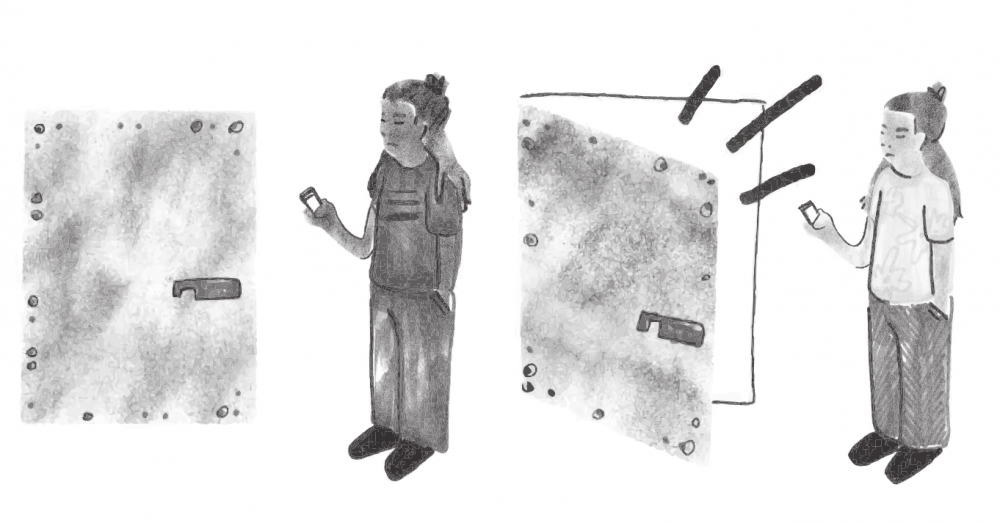It’s funky, groovy — I groove along, following its lead out of the club and onto the street where a crowd, seduced by the blue light from the Blue Nile, gather like moths sobering on nicotine. They un-sober with praise for loose open liquor laws: beer-to-go.
Leaving the Nile, I parade next door. The funk was just right, but somewhere there’s jazz. I hear it, it beckons. As it does for a conga line of scenesters and tourists. I wait behind them with a pleased and in-no-rush expression plastered across my — marked by sun-kissed pink cheeks — jolly face. I laud the last several days of 10 degrees nearer to direct sunlight — my pale body a vitamin D collector running on low. Nighttime now, and I’m still buzzing off Mr. Golden Sun.
The line shifts. The line shifts again. Just one more ID to check.
“I can’t let you in,” the bouncer tells the monsieur ahead of me.
“Huh?” he responds. I was thinking the same thing. He’s clearly over 30.
“Your ID is damaged. Bent. It’s no good.”
What are you talking about? Blue light ain’t great, and my eyes are a bit fatigued, but that ID looks like an ID to me.
“What you talkin ‘bout? This my license.”
“Bent. Can’t let you in. Just a moment, sir.” Bouncer man looks at me with a dutiful expression and nods apologetically.
Ain’t no thang. The jazz is silk and I’m treading at a pace that matches its cool.
“Tight,” I yell back, peering over the monsieur’s dreadlock-laden shoulders, still curious about what the bouncer sees that my music-loving friend and I miss.
“You can’t let me in? That’s wrong.” I tend to agree.
The monsieur shifts side to side, looks around, looks at me, looks back at the bouncer.
“A damaged ID isn’t valid.” He’s not much of a communicator, I think to myself. I hand him my B.C. driver’s license.
Then it dawned on me.
“Alright, if he’s not going in, neither am I,” I say.
“Your ID is fine, sir.”
The brother in front is a brother, a not so clean looking one at that. I look over, and he’s now on his phone. He lights a cigarette. I wonder who he’s calling. He looks at me, but I break eye contact to check him out. Old shoes, ripped jeans, faded True Religion t-shirt. I wonder if its my polished boots and collared shirt that makes me better club patron material, or something else.
“You want in?”
“No. Not my kind of club.” I turn back to the street. The celebration misses no beat. The same old song and dance on repeat.
Later, I’d read an article in The Walrus titled “How Racism Affects Your Health” by Dr. Mojola Omole, who’s a surgical oncologist who’s worked in Canada and sub-Saharan Africa. In it, Omole discusses the relationship between health and being a non-white individual.
She references — among other studies — a 2017 meta-analysis of 16 studies that measured the physiological effects of discrimination. The analysis found evidence of an association between racism and an increase in cortisol output, which can lead to weight gain and a weakened immune system. She went on to list multiple studies that suggest similar ends.
According to Omole the research in links between oppressive structures and health is still in its infancy. Regardless, research has found a gap between the quality of health in visible minorities and white Americans.
We were just trying to listen to music. Neither of us were thinking about health. But the article made me reflect on the the bigger picture. I’m still wondering if it was my black boots or white skin that made my ID look not bent. Either way, “[d]iscrimination, as one U.S. researcher has hypothesized, is a “social toxin” that may be sickening and, ultimately, killing people,” Omole wrote.

Image: Renée Campbell/The Cascade


